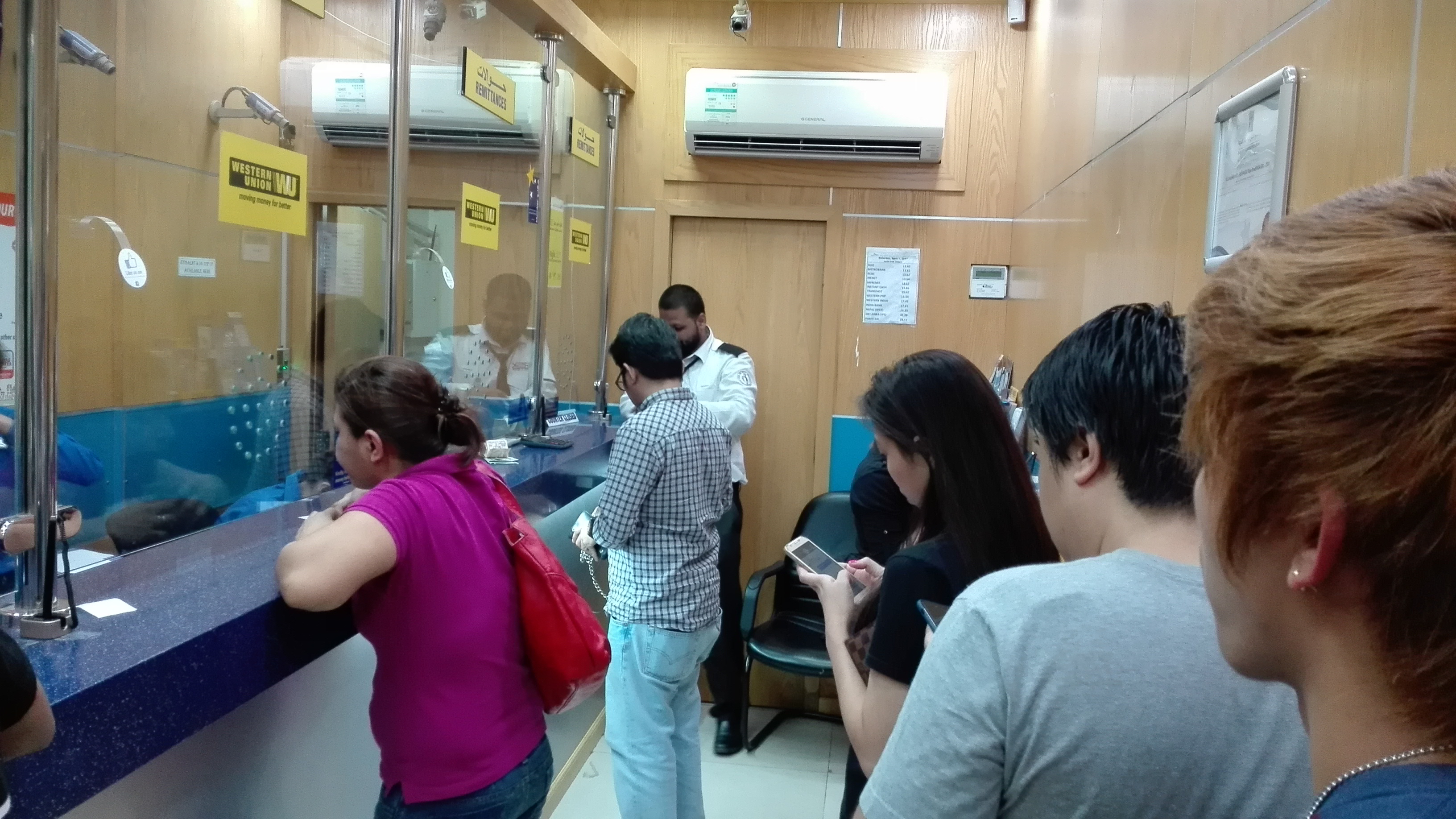DUBAI: The sun has begun to resign, leaving a tint of russet orange in the previously clear blue sky. Throughout the day, the clock seemed to be ticking backwards; a minute felt like an hour, and an hour felt like a day. But at long last, the sticky notes at the edge of the screen have all been removed and a new text flashes on your phone. It reads: “Done? I’ve picked up the kids. We’re waiting outside the restaurant.”
You break into a smile. It’s finally payday.
A recent straw poll (allowing multiple answers) conducted by the Filipino Times found that about eight of 10 Filipino expats in the UAE celebrate payday dining out with their families. The same number of respondents (82%) listed “dinner with family” on top of their three ways to reward themselves when they receive their respective salaries.
Filipinos’ two F’s: Food and family


The question: “Why do Filipinos love food?” yields about 4 million results in Google, while the question “Why do Filipinos love family?” got over 11 million. Experts have tried to explain Filipinos’ obsession with handaan and family get-togethers, but the explanations could be summed up by this: family and food are essential aspects of the Filipino culture.
“Why do Filipinos love food?” yields about 4 million results in Google, while the question “Why do Filipinos love family?” got over 11 million.
The straw poll found that majority of the respondents’ most recent expenses were restaurant bills. Half of them (5 out of 10) took their family out on fine dining restaurants, 2 out of 10 pigged out on buffets, while the rest, 3 out 10, opted for casual lunches.
Others, after receiving their salaries, go straight to shopping centers and movie houses to delight themselves and their families with fun activities and entertainment. Here’s the breakdown: six out of 10 employees buy shoes/clothes for their kids; two out of 10 expats head to cinemas to watch movies; while the rest spend money on staycation in hotels or stroll around amusement parks.
Value systems


“We have different value systems and principles,” explained Cherrie Ragunton, a counseling psychologist.
While some people find happiness in material things, others find happiness in seeing their loved ones happy, and that in itself becomes a reward, Ragunton told The Filipino Times.
True enough, the respondents who spent on things for their families claimed they believe in the importance of investing in quality time with their loved ones.
“For me, reward is not spending on expensive things for myself but [having] quality time with my whole family,” said Althea Paras, a Dubai resident with three kids.
“It is more important and fulfilling for me to give something for my family, [and] to see and make them happy rather than [reward] myself,” said Deo Calasicas, a Dubai technician with five kids.
Meanwhile, some shared that they would rather indulge their family more than themselves because their loved ones are the reason why they go through the blood, sweat and tears routine working abroad in the first place.
“I reward my family first since they are the reason I strive harder each day,” said Victor Paras, a bank operations officer in Sharjah.
“[I reward] not myself but my family because they are my inspiration. [I] choose to work abroad to give them the very best I can,” agreed Bhey Abuan, an accountant in Dubai with three kids.
Top priority


While a huge percentage of Filipinos head to the mall and whip out their debit cards in every stall they find after a month of hard work, top priority remains sending remittance back home to provide roof over their families, the survey showed.
“Rewarding myself is not necessary during payday because I’ll be happier spending my money for my family to support their needs,” said Ria Delantar, a regional CS in Dubai.
A third of the respondents claimed they never reward themselves during payday because all the extra money goes to their family and relatives in the Philippines, while a fourth of the respondents claimed they never reward themselves because extra money goes to savings.
When asked how important personal rewards are, Ragunton explained: “It’s very important for a working individual to see the fruits of his labor because rewarding themselves after a month of hard work is their way to give incentive to their selves.”
Ragunton cited the Incentive Theory of Motivation, a widely supported thesis in behavioral psychology, which asserts that behavior is motivated by a desire for external reinforcements or incentives.
However, the incentives need not be a material purchase, she clarified, “[Again], it all boils down to what we value and give importance to.”
A tenth of the respondents shared that the rewards, in whatever form, motivated them to strive harder in their jobs.
“We have to reward ourselves so we can have motivation or be inspired that living in UAE is a good decision […] We have to chill and relax so the next day we have the full energy to face everyday challenges as OFWs,” said Rowena Banaticia, an HR assistant in Dubai.
Similarly, Rhodnica Esber, 21; Allan Cariaga, 34; Jennifer Calma, 37; and Queenie Paras, 41, all also believe that rewards are motivating incentives which push them to work harder.
“[Motivate] yourself to work hard, but we should reward ourselves according to our means. We should prioritize saving before spending,” Calma reminded.
Guilty as charged


The straw poll suggests that nine out of ten Filipino expats in the UAE have treated themselves to a luxury item at least once.
The items listed by the respondents in the poll ranged from designer bags such as Coach, Prada and Louis Vuitton, which could cost about Dh5,500; signature watches that ranged from Dh1500 to Dh8,000; Pandora bracelets and charms that could cost Dh700 to Dh800; gadgets such as the latest iPhones and Samsung mobiles, and laptops; and cars, which cost about Dh85,000.
Among the respondents, 46.2 percent believe that the things they buy relieve them of homesickness, and 73 percent claimed that spoiling themselves de-stressed them from work.
“We must feel that after our hardwork, we can reap whatever we worked hard for,” Romel Camazuela, a Dubai resident said.
Yet, despite knowing that they deserved to treat themselves, 88.5% still believed they feel guilty when they do.
To avoid feeling guilty, Ragunton advised, OFWs must spoil themselves within boundaries and limitations and ensure that their responsibilities are not neglected.
“It’s very important that when we spoil ourselves, the spoiling and rewarding must not go beyond our earning capabilities; that spoiling must come from the extra budget and must not be a reason to sacrifice priorities,” she explained.





